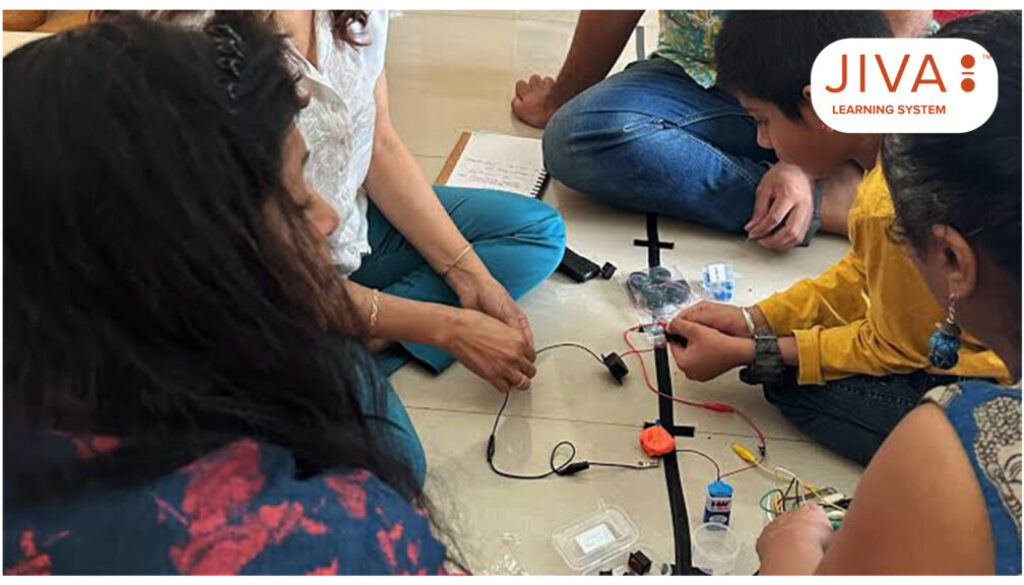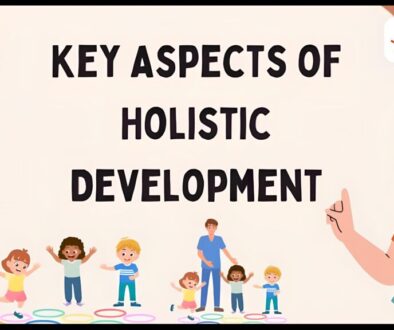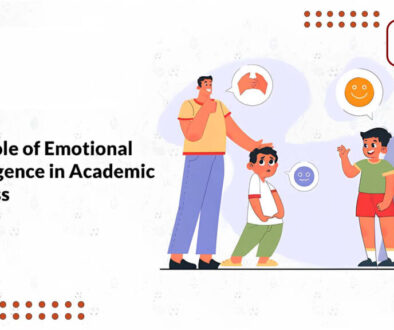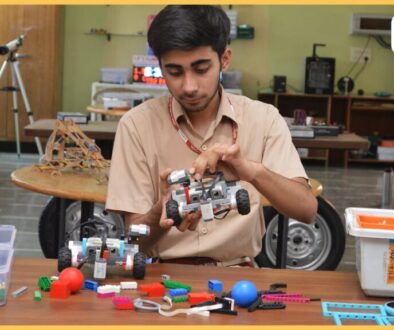The Future of Skills-Based Education: Preparing Students for the 21st Century
In today’s fast-changing world, the older way of teaching is no longer enough. These days the focus is on skills-based education that helps students acquire the competencies needed to succeed in the twenty-first century. The Jiva Learning System is leading this change to better prepare students for the future.
How Education is Changing
By using antiquated methods of memorisation and passing standardised tests, students are not equipped to handle the challenges of today. These methods have merit, but they don’t equip students with the knowledge and abilities they need to succeed in the modern world. In the twenty-first century, critical thinking, problem-solving, and flexibility are all essential because they allow people to thrive in a changing environment.
Why Skills-Based Education Matters
The goal of skills-based education is to give students employable experience in the real world. This type of education makes students more employable and encourages them to continue learning throughout their lives.
- Critical Thinking and Problem-Solving: The process of teaching students to think critically and develop original solutions to problems is known as critical thinking and problem-solving.
- Collaboration and Communication: Helping students communicate and collaborate with each other in an efficient manner.
- Digital Literacy: In order to ensure that students are comfortable using digital resources, it is necessary to have digital literacy.
- Adaptability and Resilience: Students who possess greater resilience and adaptability will be better able to deal with change and overcome obstacles.
How Skills-Based Education is Integrated
The Jiva Learning System develops these abilities through project-based, individualised, and experiential learning. Here’s how:
- Personalised Learning
Every student is different with varying learning styles and strengths. By adjusting instruction to meet each student’s needs, personalised learning increases student engagement and guarantees that they acquire skills efficiently.
- Hands-On Learning
Learning through experience links theoretical knowledge to practical applications. This method gives students practical experience through workshops, internships, and community service projects. Students learning becomes more relevant and engaging when they can relate what they have learnt to real-world situations.
- Project-Based Learning
Students work on real-world projects that call for teamwork, creativity, and critical thinking through project-based learning. These assignments typically deal with real-world issues, which provides students with real-world experience and improves their comprehension of the material. This method gives students a sense of accomplishment while preparing them for the challenges that lie ahead in their careers.
Preparing for Future Jobs
The requirements for jobs also change as industries do. Skills-based education, which places an emphasis on core competencies like these, better prepares students for their future careers:
- Data Analysis: The ability to comprehend and interpret data is becoming more and more crucial. For the purpose of making well-informed decisions, students must learn how to manipulate data.
- Artificial Intelligence (AI): Given its increasing popularity, it is essential to comprehend its applications. Students can stay current with technological advancements and make efficient use of these resources by learning about artificial intelligence.
- Sustainability: As environmental issues receive more attention, understanding green technologies will be helpful. By learning about sustainable practices, students are ready for careers in environmentally friendly industries.
The Role of Teachers and Policymakers
The adoption of innovative teaching techniques by educators and the support of reforms that prioritise skill development by lawmakers are essential to the success of skills-based education. Teachers must incorporate technology into the classroom and pursue ongoing professional development. Teachers can give students a top-notch education that will prepare them for the future if they are given the resources and training they need.
Overcoming Challenges in Implementing Skills-Based Education
The advantages of skills-based education are obvious, but putting it into practice presents difficulties. These consist of:
- Resource Limitations: Budgetary restrictions may prevent schools from implementing new technologies and teaching strategies.
- Resistance to Change: It’s possible that some institutions and teachers will oppose altering conventional teaching techniques.
- Assessment Difficulties: Assessing skills-based learning can be more complicated than using traditional testing techniques. Assessing student progress requires the development of efficient assessment instruments.
Conclusion
In the future, education will aim to prepare students for a constantly changing world. Skills-based education, which prioritises flexibility in lifelong learning and practical skills, provides the foundation for this preparedness. The Jiva Learning System, which provides students with the tools they need to succeed in the twenty-first century, is spearheading this educational revolution. Adopting skills-based education will benefit students and society as a whole by creating a more successful and dynamic educational experience.




